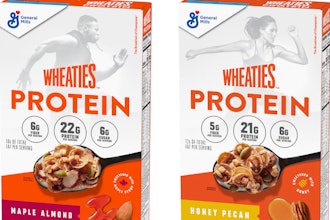
 Megan Ray Nichols
Megan Ray NicholsMillennials are changing how manufacturers produce and promote food. To keep up, food manufacturers need to learn about this generation's food preferences and how they will affect the industry today and in the future. When manufacturers know what millennials demand of their food, they will better cater to this large demographic of consumers.
They Care About Cause
The quality and flavor of your food products are only part of why millennials purchase them. Many in this generation become loyal to brands that support causes. In fact, 37 percent prefer a specific brand due only to the cause it supports.
This fact doesn’t mean you should arbitrarily put a cause on your label. Do so only if your business is willing to support that cause financially. If your company already donates to a charitable organization, you can use that as one way of showing your customers that you care about the world beyond your sales and profits.
Low-Fat Is Out — Low-Carb Is In
During the 1980s, fat was the enemy, but now, millennials are turning that dietary myth on its head. Today's young adults are less concerned with low fat and more interested in foods labeled as low-carb. This change correlates with the many low-carb diets that are trendy today.
Animal fat has lost its stigma and is embraced by young adults today. The keto and paleo diets, which espouses low-carb, high-fat and high-protein eating, could influence the 47 percent of millennials who say animal protein is healthy.
They Pay More for Natural Foods
Healthy food for millennials often means all-natural, organic, GMO-free or locally sourced. Three out of five millennials are willing to spend more money on these foods than conventional ones. Their spending habits come from how these types of foods make them feel. When purchasing these kinds of products, 80 percent of millennials feel healthier or more responsible.
If you already use all-natural foods or organic products, note that on your label. Organic products have required standards that you must meet. Note if your products are locally sourced to appeal to locavores who strive to consume foods produced in their area. If you're already appealing to millennials who want natural foods, let them know on your label and advertising. Just be sure to adhere to all government requirements about health and ingredient claims.
Ingredients Matter
The ingredients you use do make a difference. Up to 31 percent of consumers always read the ingredient label, and 49 percent of shoppers indicate health claims are extremely important. If you want to change the ingredients in your products to line up with consumer demands, understand what they do.
If you take out preservatives, you may find a decrease in profits as the shelf life of your products plummets. While getting unnatural ingredients out of your food is commendable, ensure your foods' taste and longevity will not be affected. Taste is still important to millennials and all consumers.
Taste Reigns Supreme
As important as health is to millennials, taste is still vital to what they choose to eat. Of Americans, 71 million focus on taste at every meal. Gourmet and premium foods use high-end ingredients to create more flavorful products. Premium food purchases rose eight percent in 2016, compared to three percent for other categories. Clearly, consumers want tasty, high-quality food.
Your foods must taste good before you can convince the foodies among millennials to buy them. When introducing new products, conduct taste tests to ensure they’re as flavorful as they are healthy.
Millennials Desire Convenience
While taste is important, so is convenience. Many millennials are at a time in their lives when they’re in college or just starting their adult lives. Between relationships, careers and families, they have less time for meal prep. Among millennials, 55 percent cite convenience as the driver for their food choices.
If your foods require preparation, think about how you can reformulate them to reduce the prep time. Consider putting together meal kits that require fewer extra ingredients, or create ready-to-eat options for your customers to make it easier for them to consume in their tight schedules.
Millennials and Food Production
As 18-to-35-year-olds, millennials will be a prime buying group for many years to come. Their influence on food production and sales has already been felt in the industry. Unless you cater to millennials, you may find your profits dropping. Pay attention to this demographic to boost your sales.






















